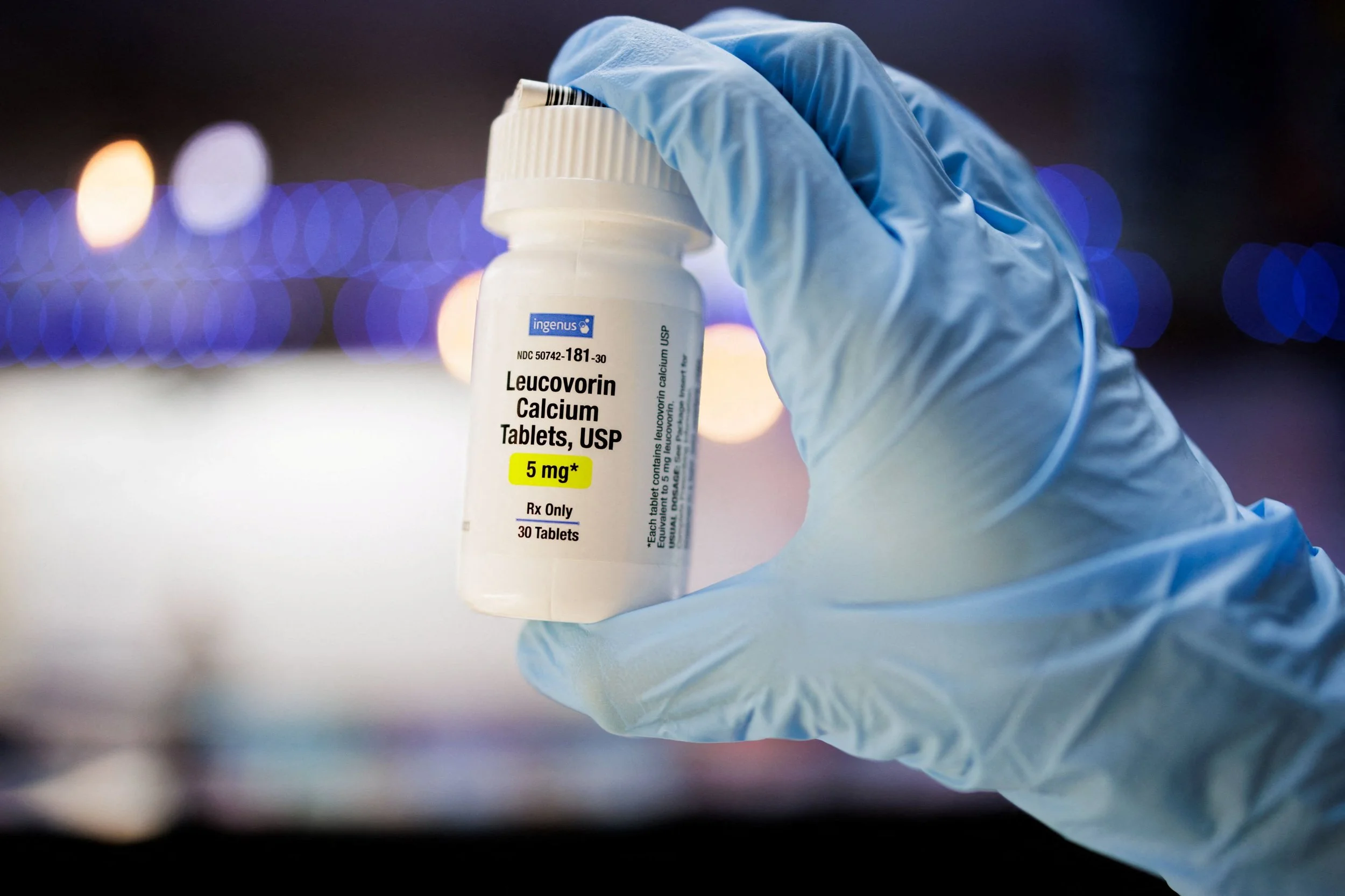Leucovorin: How is it related to Autism?
Written by Andy Chen
Edited by Grace Koch & Gabriel Martinez-Amezaga
If you’ve opened up the news recently, you may have seen an article about leucovorin, a drug touted as a therapy for autism. Leucovorin was originally used as a supportive oncotic drug to help patients tolerate chemotherapy, however, it is being repurposed for its impact on children with autism spectrum disorder (ASD), particularly those with cerebral folate deficiencies.
The Food and Drugs Administration recently announced an update to leucovorin’s status as a treatment for cerebral folate deficiency (CFD). This is a condition that arises when autoantibodies block folate—also known as vitamin B9, which plays a critical role for various bodily functions—from entering the brain, essentially preventing looped development and communication. Interestingly, leucovorin, a form of folinic acid, can bypass the blockade and restore the availability of folate to the nervous system and assist with early development. As a result, it is being studied for an unexpected reason: assisting the children on the autism spectrum who have CFD.
Photos from washingtonpost.com. Curated by Maddelyn Rhodes (mgr84@cornell.edu)
Studies have shown that certain children with ASD and folate-deficiency issues have seen an improvement when on leucovorin. Some reports have been a gain in verbal communication, language compression, and social responsiveness. Some have even seen progress in new words spoken or increased eye contact, which have been extremely meaningful to families.
However, the evidence is far from complete. Most of the research has been focused on smaller samples sizes, notable case reports, or even pilot studies. There is a need for larger and more rigorous trials to truly determine if leucovorin benefits diverse populations of children with ASD. Especially since, if patients don’t have CFD, there may not be a significant benefit from the drug.
Therefore, researchers and clinicians emphasize that the drug should not be treated as a cure for autism. ASD is not an illness to be “fixed” or “cured,” instead it is a natural variation in the human brain. The autistic community emphasizes that their experiences, perspectives, and way of thinking are not a problem to be erased, but an essential aspect of their identity to be understood and respected.
Many communities and advocacy groups have echoed this idea, and urge for medical support to take the form of acceptance. It is important to celebrate this scientific progress, while also rejecting the incorrect idea that ASD is a “disease to be treated.” As such, the hope is for leucovorin to be offered as a supplementary therapy with compassion, choice, and understanding.
As such, leucovorin’s story isn’t just one of medicine. It is a story that should merge science and empathy, supporting those who need it without diminishing their identity. The real progress should be changing the world to accept people of all backgrounds, not changing people to fit a societal norm.
Andy Chen ‘27 is in the College of Arts and Sciences. He can be reached at ac2697@cornell.edu.

